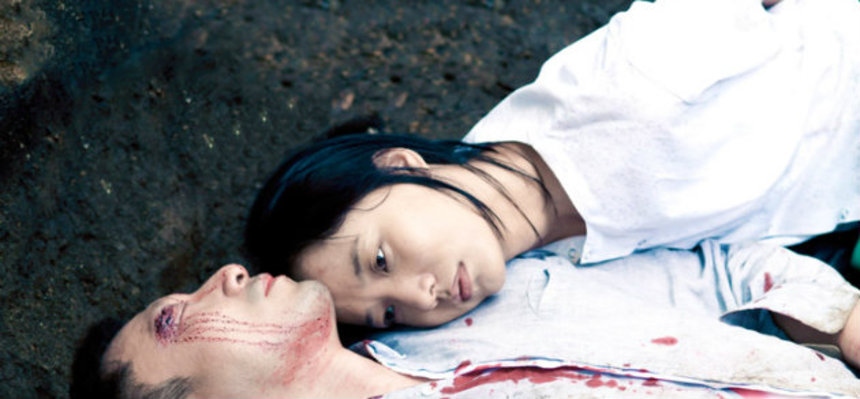Udine 2013 Review: Drug Smuggling Begets Strange Relationships in LETHAL HOSTAGE

The film unfolds in non-linear structure, but it's more in the vein of a novel (complete with chapter titles) than a hyper-kinetic Pulp Fiction rip-off. It involves a number of characters, but the most thematically relevant is a drug smuggler who operates between Myanmar and China. During a drug deal gone bad, he panics and kidnaps a ten-year-old girl whose father is in turn wrongly accused and sent to prison. Rather than killing the girl as he's told, the man assassinates the head of the crime ring and, after raising the girl for ten years, he marries her. Once her father's finally out of prison, she's legitimately in love, and no longer wants to leave her captor.
The thematic and emotional implications of this story are fascinating, as is the exploration of drug trade that goes on between China and Myanmar. However, considerable screen time is also given to a number of other characters that are nowhere near as interesting or fleshed out, and seem present simply to move the plot in the direction that writer/director Er Cheng is determined to take it.
Besides that, the plot itself and decisions that spur the story along are often a bit hard to swallow. For example, in the scene that serves as the catalyst for the central story, a crime boss, realizing the cops nearby are onto him, orders his partner to dump the drugs they're carrying in the toilet. Immediately after doing so, he pulls out a gun, and starts a fire fight with the cops, which, if I'm not mistaken, completely negates whatever efforts he took to appear innocent.
Also, according to Lethal Hostage, any henchman with a fairly high rank can simply shoot his boss and gain complete control of a multi-million dollar drug smuggling operation with no resistance whatsoever. Maybe this in in fact the way it is, but Cheng offers little in the way of explaining the in's and out's of why things work or don't, or even why some of the characters make the baffling decisions they do. There's also enough coincidence involved in the way things unfold to make even Charles Dickens blush.
However, like the master storyteller himself, Cheng's assured style goes a long way towards glossing over these problems. Using minimal dialogue and a score that veers from tense, pulsing repetition to epic discordant strings, he stages every scene with cool-headed elegance, editing and shooting the action to maximize both suspense and emotional impact.
In many ways, he seems far more concerned with images (of which many are very striking) and the characters' emotions than with telling an air-tight crime story. I respect this sensibility, to a point. But in the case of Lethal Hostage, a little bit more work on the story and supporting characters would have helped the relationships and emotional damage Cheng explores hit even harder. Still, Lethal Hostage clearly establishes Cheng as a formidable talent with a lot on his mind, and I look forward to his next effort.

Do you feel this content is inappropriate or infringes upon your rights? Click here to report it, or see our DMCA policy.






